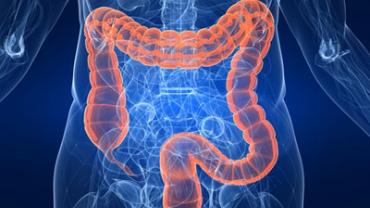
The gut plays an essential role in our immune function as well as in the digestion and absorption of our food. The intestinal barrier provides an effective boundary from pathogenic bacteria as well as a healthy environment for beneficial bacteria.
Our immune system has a tendency to decline with age which makes us more susceptible to infections and increases our risk of various diseases. Researchers and clinicians in Italy have performed the first detailed study of how our gastrointestinal tract changes as we age and how this impacts our overall health. They compared samples from patients of different ages who had routine endoscopic exams and found that as we age the gut has an increase in interleukin 6 (IL-6) which causes the immune system to release IL-6 and trigger inflammation.
Further experiments have demonstrated that the increased levels of IL-6 directly lead to increased intestinal permeability with no physical differences seen in its structure. They also showed that there was a correlation between aging and a declining immune response to microbes which may contribute to the increased susceptibility to infection often seen as we get older.
Whenever you have inflammation present the tight junctions and intestinal mucosa can become damaged causing gaps in the lining of the GI tract also known as leaky gut. We have to remember that the GI lining is only one cell layer thick with the immune system on the other side. Toxic byproducts in the digestive tract can be absorbed into the bloodstream. The molecules of food and toxins can make their way through the GI lining and then eventually affect other systems throughout the body. Controlling inflammation is vital in order to prevent inflammatory bowel diseases as well as many autoimmune disorders.
It is critical to address what triggers these changes in gut permeability and immune response (i.e. IL-6). Gut permeability can be affected by stress gastrointestinal infections NSAIDS and alcohol. Nutrients such as L-glutamine and saccharomyces boulardii have many benefits on overall health including their significant effects on intestinal barrier function. Glutamine is the main fuel of the colonocytes and saccharomyces boulardii has powerful effects protecting the intestinal epithelial cells maintaining intestinal barrier function and increasing sIgA secretion. This is significant since sIgA is the bodies primary immune response. In addition vitamin D has an immunomodulatory effect on regulatory T cells.
Environmental triggers that can cause inflammation are gluten and other food sensitivities as well as anything else present with the ingested food such as toxins or molds. In addition it is essential to assess the nutrient status of the person. This can be antioxidant status vitamins essential fatty acids vitamin D etc. Antioxidants such as ubiquinone and essential fatty acids from fish oils can help to decrease IL-6.
The gastrointestinal microbiome changes as we age and it interacts with the gut lining as well as the immune system. There are specialty labs that can assess this microbiome by looking at the relative abundance and diversity of beneficial bacteria. In general a high diversity of beneficial bacteria is associated with a positive health status whereas a low diversity is associated with many chronic conditions. These labs also test digestion and absorption markers inflammatory and immune status and gastrointestinal infections and parasites.
Understanding and investigating these factors will help us find better ways to prevent chronic conditions. For example if there is a dysbiosis we can manipulate this through antimicrobials proteolytic enzymes probiotics and other nutrients as a way to stay healthy as we get older.